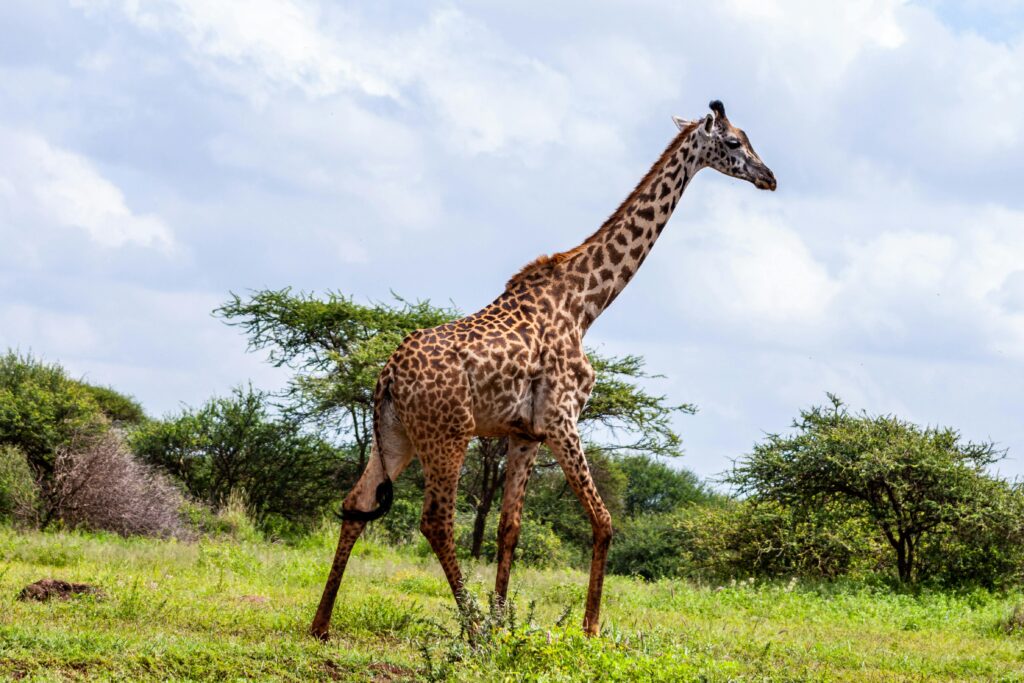Wildlife tourism has been a growing component of exploration and adventure, catering to those passionate about nature and wildlife. Whether the motivation is to observe majestic animals, like lions and elephants, in their habitat or to engage with diverse ecosystems, there is a profound understanding that we must interact with these environments responsibly. Individuals seeking once-in-a-lifetime luxury Tanzania vacations must recognize that their travel decisions matter. Participants in such adventures are advocates for sustainable tourism practices, demonstrating that one’s presence can coexist harmoniously with nature rather than disrupt it.
Principles of Ethical Wildlife Encounters
Engaging with wildlife ethically means prioritizing the welfare of the animals and their habitats. It requires more than passive observation; it calls for an informed understanding of the environment and respectful behavior. Publications like National Geographic have been instrumental in providing guidelines for travelers, recommending that tourists maintain a reasonable distance from wildlife and abstain from interrupting their natural routines. These recommendations make a compelling case for why the onus is on us to ensure our interactions with wildlife are as non-invasive as possible. By following these principles, tourists can become stewards of the environment, preserving it for future generations to experience and enjoy.
Benefits of Responsible Wildlife Tourism
Responsible wildlife tourism extends its advantages well beyond the immediate experience of the traveler. It is critical to local communities’ economic and social development, providing them with long-term revenue opportunities while encouraging conservation. Research spearheaded by organizations such as World Animal Protection underscores the multifaceted benefits that ethical tourism imparts to local economies, helping to counteract practices that may be detrimental to wildlife and biodiversity. By choosing to travel responsibly, tourists can contribute to a cycle that enhances the livelihood of local populations and encourages a more active engagement with conservation efforts.
The Role of Tourists in Conservation
Tourists wield significant influence in conservation through the choices they make. Putting their time and resources into eco-friendly tours and accommodations generates demand for practices that respect the environment, encouraging more service providers to adopt green policies. This cycle of support fosters conservation-minded communities and initiatives. Tourists effectively become ambassadors of wildlife preservation, upholding the importance of conservation in tourism and influencing others to follow suit.
How to Choose an Eco-Conscious Safari
Selecting a safari operator with proven conservation credentials can be daunting but rewarding. Transparency is the keystone for understanding their commitment to the environment. Look beyond glossy brochures and explore their practices: Are they involved in conservation projects? Does the company actively reduce waste and conserve water? Have efforts been made to protect the local flora and fauna? These indicators can reveal the true ethical nature of a safari operator, providing travelers with peace of mind that their adventures support a greater good.
Understanding the Impact of Your Visit
Being an eco-conscious tourist means understanding that one’s presence in a natural setting leaves an indelible mark. From water usage in a tented camp to the light pollution from a lodge, every little aspect of a tourist’s stay can impact the environment. Practicing minimal impact tourism—where the natural state is left undisturbed—ensures that travelers can help keep ecosystems intact and vibrant. Such practices contribute to tourism and treasuring and safeguarding the wild spaces for those who follow.
Respecting Wildlife: Do’s and Don’ts
Engaging with the wild requires a set of respectful behaviors to ensure that human presence does not alter the natural dynamics of animal communities. The ‘do’s’ encompass quiet observation from a safe distance and the use of designated trails to minimize habitat disruption. The ‘don’ts’ are equally crucial; they include refraining from feeding wildlife, which often results in dependency and health issues for animals, and avoiding the temptation to chase or corner wildlife for a closer look, as this can cause distress and disrupt natural behavior. Tourists who adhere to these norms contribute to the well-being of the wild and its inhabitants.
Supporting Research and Conservation on Your Travels
Choosing operators that actively support research and conservation endeavors means that the price of a safari goes beyond just the experience—it becomes an investment in the future of wildlife. This funding assistance goes toward critical scientific studies that can lead to a greater understanding and preservation of endangered species. Tourists, in essence, can become partners in efforts to gather data and conserve the very settings and creatures they have come to admire.
The Future of Wildlife Tourism
Wildlife tourism is adapting and evolving as conversations regarding the environment and its preservation become ever more mainstream. With an increasing emphasis on responsible travel, the future is bright for both tourists and the regions they visit. Every dialogue, every choice, and every recommendation fosters a culture of sustainability that ensures tourism continues to be a force for positive change, protecting the diversity and splendor of the natural world for future adventure seekers.





As a mom who loves exploring nature with my family, your article really hit home. It’s crucial for us to be mindful of our impact on wildlife and their habitats, and your tips on responsible tourism are invaluable. Looking forward to implementing these principles on our next adventure!
An excellent guide on ethical wildlife tourism! It emphasizes respecting wildlife, supporting local communities, and choosing eco-conscious operators. Kudos for showing how responsible travel choices can positively impact conservation and local economies!